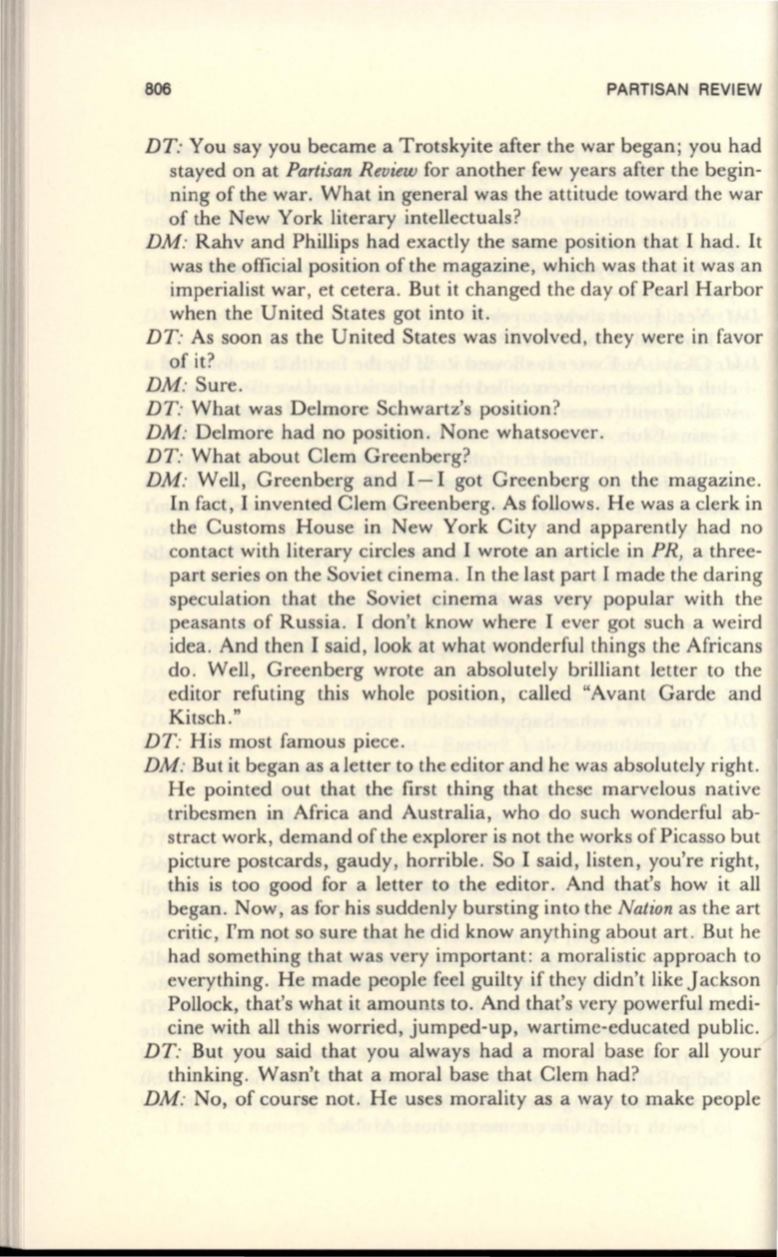
806
PARTISAN REVIEW
DT:
You say you became a Trotskyite after the war began; you had
stayed on at
Partisan Review
for another few years after the begin–
ning of the war. What in general was the attitude toward the war
of the New York literary intellectuals?
DM:
Rahv and Phillips had exactly the same position that I had. It
was the official position of the magazine, which was that it was an
imperialist war, et cetera. But it changed the day of Pearl Harbor
when the United States got into it.
DT:
As soon as the United States was involved, they were in favor
of it?
DM:
Sure.
DT:
What was Delmore Schwartz's position?
DM:
Delmore had no position. None whatsoever.
DT:
What about Clem Greenberg?
DM:
Well, Greenberg and I-I got Greenberg on the magazine.
In fact, I invented Clem Greenberg. As follows. He was a clerk in
the Customs House in New York City and apparently had no
contact with literary circles and I wrote an article in
PR,
a three–
part series on the Soviet cinema. In the last part I made the daring
speculation that the Soviet cinema was very popular with the
peasants of Russia. I don't know where I ever got such a weird
idea. And then I said, look at what wonderful things the Africans
do. Well, Greenberg wrote an absolutely brilliant letter to the
editor refuting this whole position, called "Avant Garde and
Kitsch."
DT:
His most famous piece.
DM:
But it began as a letter to the editor and he was absolutely right.
He pointed out that the first thing that these marvelous native
tribesmen in Africa and Australia, who do such wonderful ab–
stract work, demand of the explorer is not the works of Picasso but
picture postcards, gaudy, horrible. So I said, listen, you're right,
this is too good for a letter to the editor. And that's how it all
began. Now, as for his suddenly bursting into the
Nation
as the art
critic, I'm not so sure that he did know anything about art. But he
had something that was very important: a moralistic approach to
everything. He made people feel guilty if they didn't like Jackson
Pollock, that's what it amounts to. And that's very powerful medi–
cine with all this worried, jumped-up, wartime-educated public.
DT:
But you said that you always had a moral base for all your
thinking. Wasn't that a moral base that Clem had?
DM:
No, of course not. He uses morality as a way to make people


